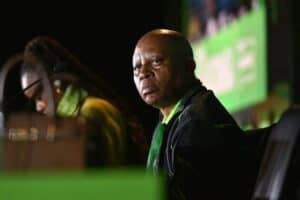Independent candidates prepare to contest the 2024 general elections amidst unresolved issues related to the Electoral Act amendments.

Independent candidates hoping to contest next year’s general elections might have to go to the polls without all the complaints about the amendments to the Electoral Act being ironed out.
But experts and some members of civil society are hopeful that the outstanding matters will be addressed after the polls.
They do not intend to let them go unchallenged. The Constitutional Court is expected to rule soon on challenges by the Independent Candidates Association and Mmusi Maimane’s Build One SA.
Although any rulings might impact the 2024 general election, indications are that the polls will go ahead and outstanding matters will be attended to later.
The large deposit levied on independent candidates, which civil society has said is too high, is one complaint.
A hot potato has been the proposed formula for the allocation of parliamentary seats for independents. There have been widespread concerns that independents will have to sacrifice votes to a political party should the independent fall below the threshold to qualify for a seat.
Policy analyst Dr Nkosikhulule Nyembezi said the amendments to the Electoral Act were likely to be gradual, or step by step.
“This means some of what is available on paper might only be enjoyed three or four elections after 2024. Some were noted in the gazetted regulations for which the IEC (Electoral Commission of South Africa) has asked for public comments on.”
Among bones of contention were the fee and the high number of signatures the candidates must get to support nomination.
There remained uncertainty surrounding the filling of vacancies for independents because there would be no by-election, something that has been questioned by civil society because it means the vacancy must just be filled by a member of an opposing political party without anybody contesting it.
According to the IEC, an independent must obtain at least 50 signatures of voters whose names appear on the voters’ roll in any voting district of the ward the candidate is contesting.
The candidate must pay a prescribed election deposit of R1 000.
While these matters were still outstanding, civil society wanted some of them to be addressed before the 2024 election, believed likely to be held between next April and June.
Nyembezi, a civil society activist and an academic, said the fact that the election will go ahead without all the amendments finalised was “not so much of a compromise”.
The election will go ahead, but not everyone is happy with the provisions of the law or its current interpretation.
“The positive thing is that before 2023, we did not have a law allowing for independent candidates to contest, and now we do,” Nyembezi said.
“Making it work optimally will be a step-by-step process, driven largely through the parliamentary processes and less through the courts.”
Support Local Journalism
Add The Citizen as a Preferred Source on Google and follow us on Google News to see more of our trusted reporting in Google News and Top Stories.






